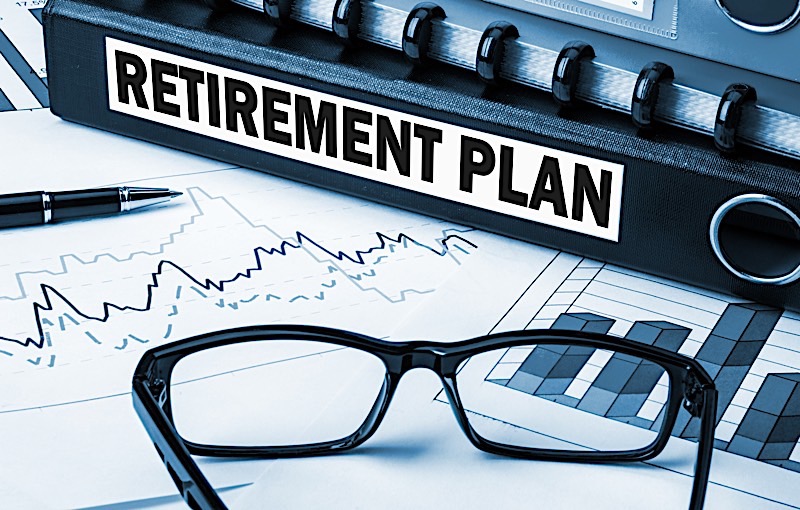What You Need To Know About Your Self-Directed Retirement Plan
By Than Merrill
Are you prepared for a self-directed retirement plan and the responsibility that ensues?
Those fortunate enough to be able to contribute to a 401(k) are undoubtedly aware of how beneficial retirement investments can be. It’s worth noting, however, that a 401(k) is just one of the many options made available to those looking forward to their golden years. If for nothing else, it’s entirely possible to self-direct your own 401(k) into an alternative investment vehicle; one that you have more control over.
Self-directed retirement accounts are great for experienced investors that know how to use them to the best of their ability. However, the same freedom that most covet from a self-directed retirement vehicle can hurt those that don’t know how to handle it. That said, it’s in your best interest to learn the ins-and-outs of self-directed retirement options before you take the first step. Below you will find a few of the considerations you need to take into account before self-directing your own 401(k).
Self-Directed Retirement Considerations

Not unlike every other investment vehicle, the prospects of a self-directed retirement 401(k) warrant careful consideration. If for nothing else, retirement is as serious of a topic as they come; it impacts just about everyone at some point. It’s worth noting, however, that your retirement livelihood is no laughing matter, as it will dictate the entirety of your golden years. That said, any attempt to save for retirement should met with due diligence and a penchant for detail. Only once you truly understand what is at stake can I recommend moving forward with a self-directed retirement plan. Let’s take a look at a few of the most important things you should familiarize yourself with before you decide to take the self-directed retirement rout.
For all intents and purposes, your typical 401(k) plan is set on cruise control; it practically runs itself once you put in the work up front. It should be pointed out, however, that a self-directed retirement 401(k) is anything but automated. As its name suggests, a self-directed 401(k) offers many of the same benefits you would find in a traditional retirement platform, but with one significant caveat: the responsibility of choosing your preferred investment vehicle is yours, and yours alone (as long as it fits within the guidelines of the I.R.S.).
Those who self-direct their retirement vehicles are allowed to exercise more options. In doing so, prospective retirees are awarded much more than a simple list of stock options recommended by their employer; they can choose from several less-than-traditional retirement vehicles, not the least of which is real estate.
At the very least, choosing to self-direct your own retirement account comes with an inherent degree of responsibility, an obligatory self-awareness if you will. That said, it’s in your best interest to make sure you are ready for the added responsibility of investing your own money without a professional to guide you along the way. Nobody is going to hold your hand through the process, nor should you expect anyone to. It’s on you to devise a smart, thoughtful retirement plan. You could say that the freedom awarded by self-directed retirement accounts coincides with additional responsibility, but many would argue that a little due diligence is well worth the price of admission to invest in a proven vehicle such as real estate.
Self-directed retirement accounts are a great option for experienced investors, as they open up a whole new world of opportunity. However, those that are less savvy when it comes to investing will need to adjust their plan accordingly. If you aren’t familiar with the options made available and how to execute them, you had better take the time to do so.
Before you self-direct your retirement account, be sure to understand the options at your disposal; know which ones are available (within the laws of the I.R.S.) and what they will require of you. Perhaps even more importantly, discover which investment option makes the most sense for your individual retirement plan. There is a lot that goes into a self-directed retirement plan, and there is no excuse for jumping in head first without minding a little due diligence. Conduct extensive research and be prepared for what is to come; your golden years will thank you for the preparation.
A self-directed retirement account can offer patrons countless investment opportunities, provided they are within the rules set forth by the I.R.S. That said, those with investing experience will find the freedom to invest their own money rewarding, whereas those with less experience may feel left in the dark. Not surprisingly, assessing today’s stocks and mutual funds can seem daunting. It’s worth noting, however, that there are a few tricks to get even the most inexperienced investors started off on the right foot.
I encourage those looking to self-direct their retirement account to do a little research. First, try to pinpoint how much time you have until you retire. Next, determine your own appetite for risk. How much risk are you willing to take? More often than not, the risk should lessen the closer you are to retirement. If for nothing else, these two factors will help you determine which retirement vehicle to place your allocated 401(k) funds in.
I maintain that real estate is one of the best options made available to those who want to self-direct their retirement funds, and for good reason: there is never a bad time to invest in real estate. Whether the market is up or down, there are opportunities to be had, so long as you mind due diligence and select your exit strategy wisely. What’s more, real estate offers the following benefits:
- Diversification
- Hedge Against Inflation
- Tangible Investment Opportunities
- More Control
Self-directed retirement plans are a lot more hands on than your typical 401(k), but approached carefully (and with a lot of due diligence), they can help you save for retirement in ways you never thought imaginable.